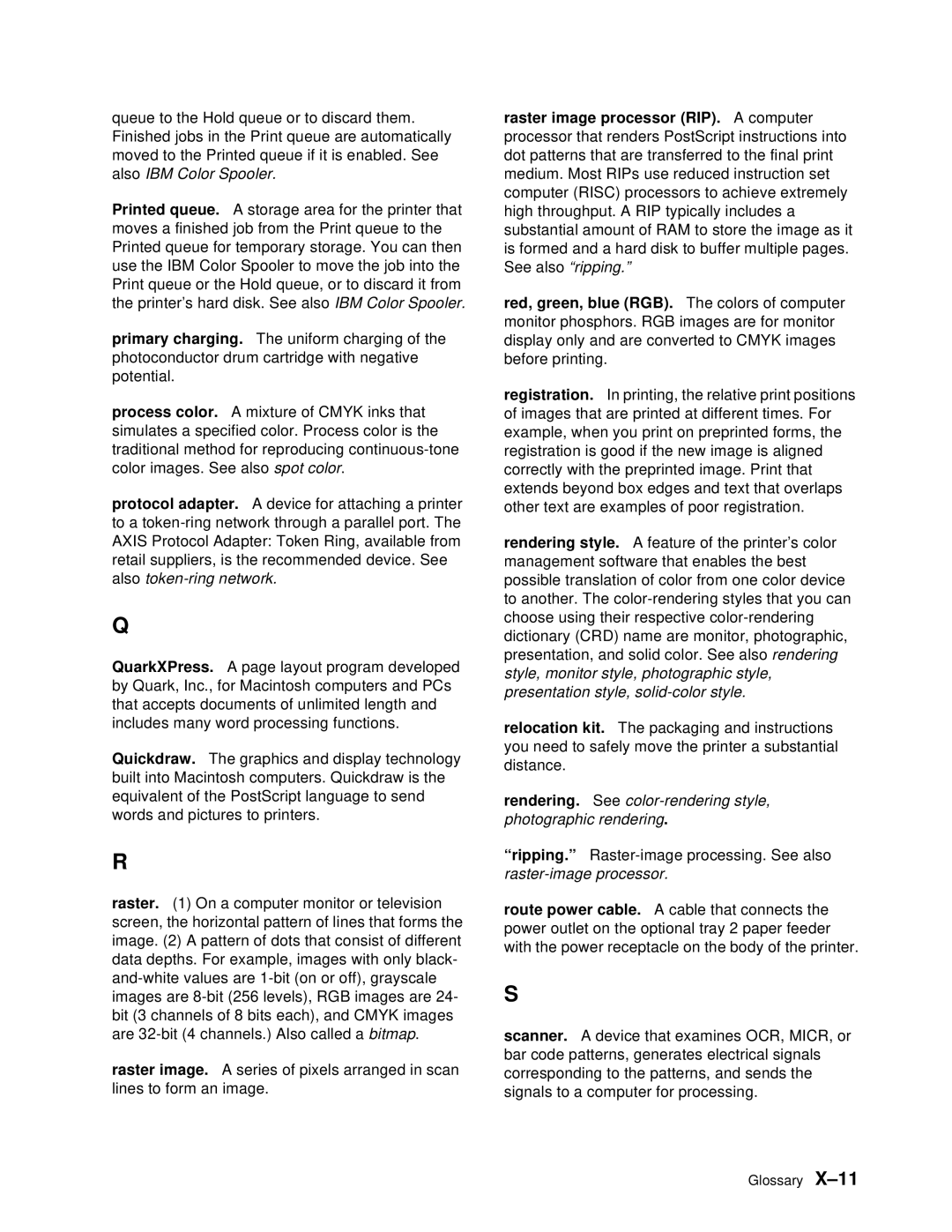queue to the Hold queue or to discard them. Finished jobs in the Print queue are automatically moved to the Printed queue if it is enabled. See also IBM Color Spooler.
Printed queue. A storage area for the printer that moves a finished job from the Print queue to the Printed queue for temporary storage. You can then use the IBM Color Spooler to move the job into the Print queue or the Hold queue, or to discard it from the printer’s hard disk. See also IBM Color Spooler.
primary charging. The uniform charging of the photoconductor drum cartridge with negative potential.
process color. A mixture of CMYK inks that simulates a specified color. Process color is the traditional method for reproducing
protocol adapter. A device for attaching a printer to a
Q
QuarkXPress. A page layout program developed by Quark, Inc., for Macintosh computers and PCs that accepts documents of unlimited length and includes many word processing functions.
Quickdraw. The graphics and display technology built into Macintosh computers. Quickdraw is the equivalent of the PostScript language to send words and pictures to printers.
R
raster. (1) On a computer monitor or television screen, the horizontal pattern of lines that forms the image. (2) A pattern of dots that consist of different data depths. For example, images with only black-
raster image. A series of pixels arranged in scan lines to form an image.
raster image processor (RIP). A computer processor that renders PostScript instructions into dot patterns that are transferred to the final print medium. Most RIPs use reduced instruction set computer (RISC) processors to achieve extremely high throughput. A RIP typically includes a substantial amount of RAM to store the image as it is formed and a hard disk to buffer multiple pages. See also “ripping.”
red, green, blue (RGB). The colors of computer monitor phosphors. RGB images are for monitor display only and are converted to CMYK images before printing.
registration. In printing, the relative print positions of images that are printed at different times. For example, when you print on preprinted forms, the registration is good if the new image is aligned correctly with the preprinted image. Print that extends beyond box edges and text that overlaps other text are examples of poor registration.
rendering style. A feature of the printer’s color management software that enables the best possible translation of color from one color device to another. The
relocation kit. The packaging and instructions you need to safely move the printer a substantial distance.
rendering. See color-rendering style, photographic rendering.
“ripping.”
route power cable. A cable that connects the power outlet on the optional tray 2 paper feeder with the power receptacle on the body of the printer.
S
scanner. A device that examines OCR, MICR, or bar code patterns, generates electrical signals corresponding to the patterns, and sends the signals to a computer for processing.
